The best high-protein low-calorie foods for healthy weight loss
Swapping to some of the best high-protein low-calorie foods could help you stay fuller for longer and lose weight sustainably, nutritionists say
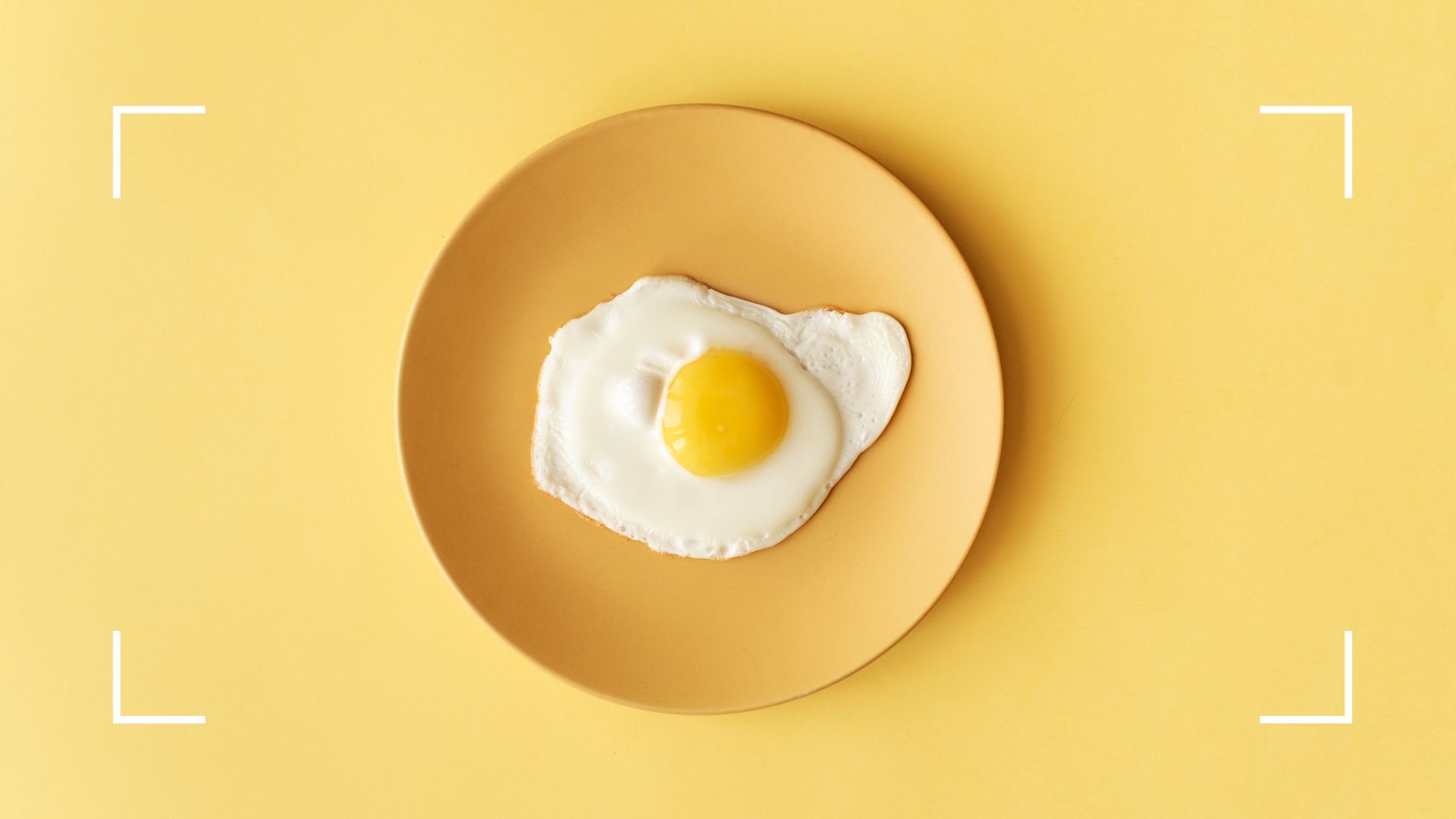

Adding some of the best high-protein low-calorie foods to your basket can make all the difference when you're trying to lose weight healthily. From staying full past lunchtime to maintaining muscle in a calorie deficit, there are so many benefits.
Losing weight is mainly about eating fewer calories than you burn every day. It's otherwise known as an energy or calorie deficit, and although it gets a little bit more complicated than this down the line, it's often the best place for most people to start. Foods that are higher in protein and lower in calories are hugely beneficial for this as they work to keep us fuller for longer while keeping our daily calorie count low, meaning we're less likely to snack and pull ourselves out of the deficit.
Even the best high-protein low-calorie foods aren't a magic bullet for getting into a calorie deficit to lose weight, but they can certainly help if you're looking to learn how to lose weight without dieting by traditional methods. Here, we've spoken to three nutritionists to reveal the foods to pick up at the grocery store this week and the ones to avoid, for healthy, long-term weight loss.
Best high-protein low-calorie foods
1. Eggs
Eggs are a true staple of a high protein diet, explains nutritionist Jenna Hope, as they're a great source of protein and micronutrients while maintaining a relatively low calorie content at around 80 - 100 calories each, with 6g of protein per egg.
But these brunch staples are beneficial for so many other reasons, she explains. "Eggs are rich in key nutrients such as choline, Vitamin D and B12," Hope says. "Choline is vital for supporting cognitive function, Vitamin D is essential in supporting mood, bone health and immune function, and B12 plays a role in energy production. Eggs are also super versatile which means you can enjoy them most days in such a variety of ways."
When it comes to keeping calories low though, nutritionist Silvia Micheletti, who works with Rainbow Labs, says, opt for hard boiled over fried. "They're slightly fewer calories as the fried eggs requires oil to cook, making them heavier in protein and lighter in fat."
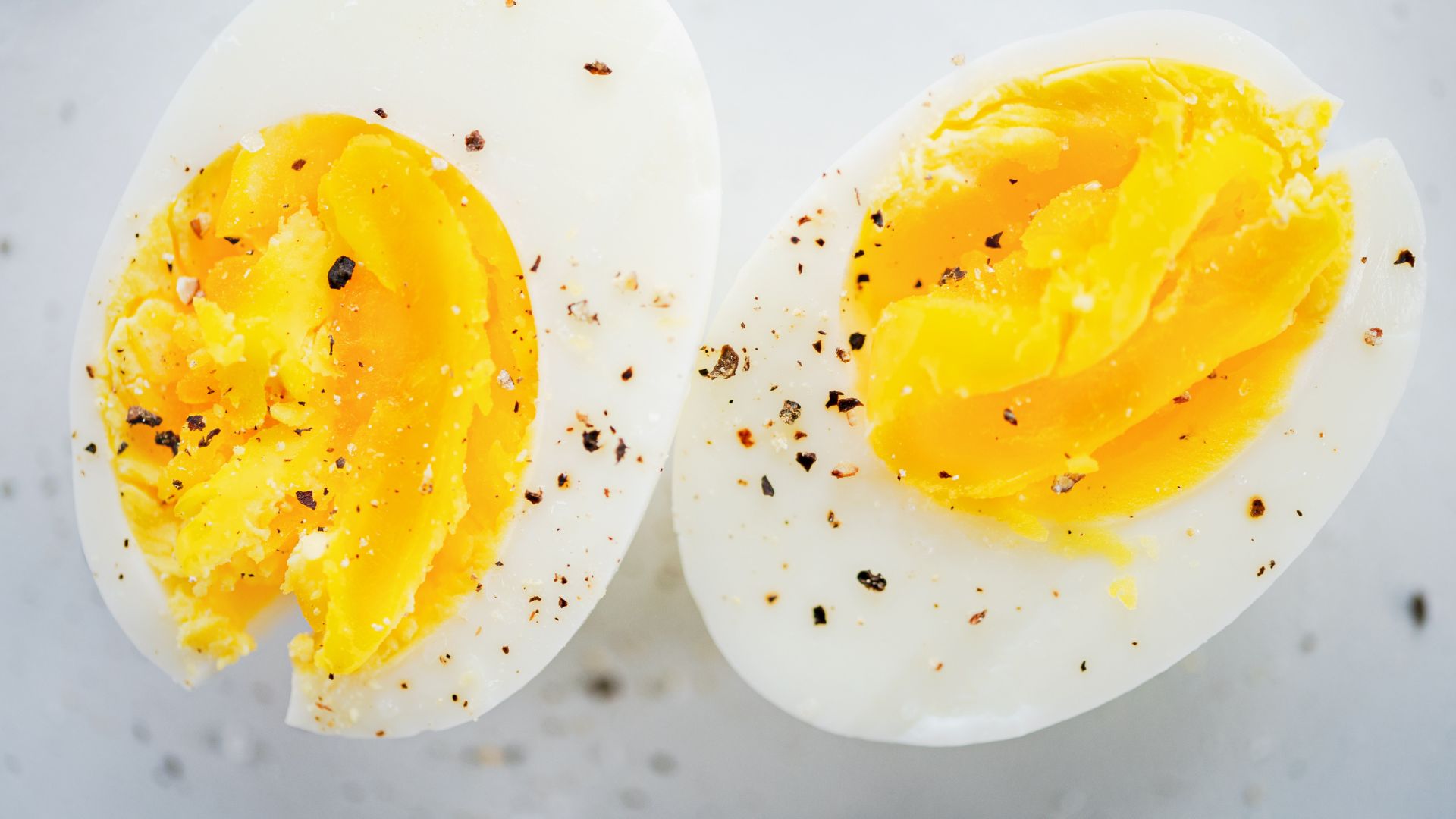
2. Salmon
Per 100g, salmon offers around 208 calories and 20g of protein, making Eggs Royale a firm favorite on the brunch menu of anyone thinking about how many calories you should have for breakfast.
Sign up for the woman&home newsletter
Sign up to our free daily email for the latest royal and entertainment news, interesting opinion, expert advice on styling and beauty trends, and no-nonsense guides to the health and wellness questions you want answered.
Fish may be expensive to buy at the grocery store but if your budget can stretch, it's also certainly worth picking up a packet of smoked salmon or some fresh fillets. Frozen salmon is great too, and often cheaper.
If you have a choice, wild-caught salmon is the best option, the US Department of Agriculture's Research Service suggests, being that it's higher in protein than farmed salmon, which contains more calories and healthy fats.
3. Edamame
Edamame is one of the top recommended foods for those wondering what to snack on when dieting, but they make for a great addition to pretty much every type of meal - scatter them across your eggs at breakfast, top up your salads with them at lunch, and add them to your noodles at dinner.
While eggs, meat, and fish, are often considered the best high-protein low-calorie foods, plant proteins like edamame are often undervalued, says Micheletti. "The plant-based alternatives have better nutritional profiles, such as more fiber and less saturated fat and cholesterol than animal-based protein. They are also less inflammatory as they're high in phytonutrients and contain more amino acids compared to animal protein."
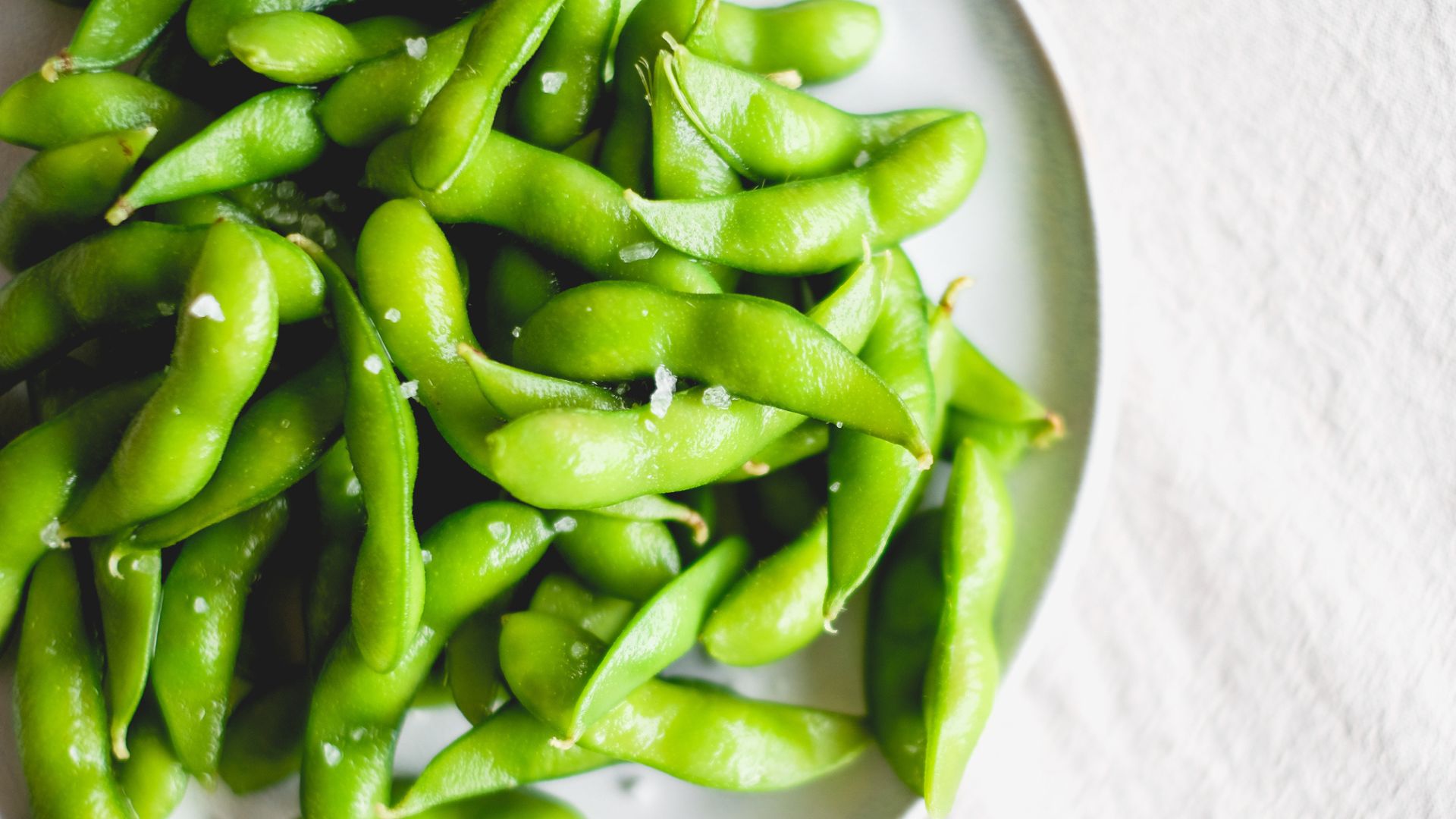
4. Scrambled tofu
"For individuals following a more plant heavy or vegan diet, scrambled tofu is an excellent high protein, lower energy breakfast," says Hope. "Where possible, ensure you’re opting for calcium-set tofu as this can help to increase your calcium intakes too."
It's a great alternative for brunch if you're looking to lower your calorie intake, as tofu typically only has around 70 - 80 calories with 8g of protein per 100g.
"Scrambled tofu can be served with mushrooms and spinach for a more nutrient packed breakfast and added to a wholegrain sourdough or rye toast for some extra fiber too," she adds.
5. Protein powder
Choosing one of the best protein powders is a great way to supplement your diet and get more protein in. However, when it comes to the benefits of protein powder, not all were made equal.
"There are two types of high protein, low calorie protein powders that stand out among the rest, and that’s whey protein isolate and pea protein powder," explains Abi Roberts, a certified sports nutritionist.
"Whey protein isolate is a highly purified form of whey protein, which is derived from milk. It is typically low in calories, high in protein, and has a high bioavailability, meaning that it is easily absorbed and utilized by the body," she says.
Pea protein, on the other hand, is a plant-based protein powder that's derived from yellow peas, explains Roberts, who works with Bulk.com. "It's also low in calories and high in protein, and it makes an excellent choice for those looking for a vegan or vegetarian protein supplement."
Many people also ask are protein bars good for weight loss and the answer here is yes! While you'll want to prioritize whole foods and other higher-quality forms of protein in your regular diet, supplementing with a protein bar can help keep you full throughout the day.
6. Chicken breast
A favorite for a reason. Chicken is a really lean protein source, explains Roberts. "It's also not particularly high in calories, offering around 160 calories in a breast with 30g of protein," she says.
"It can also be incorporated into main meals or as a high protein snack, and eaten hot or cold, so it's fairly versatile."
7. Natural yogurt
Natural yogurt is another excellent high protein low calorie option for breakfast or an afternoon snack, and one of the best foods for weight loss generally. "It could be served with fresh or frozen berries, mixed nuts or seeds for an extra boost of fiber and healthy fats, and topped off with cinnamon, which can play a role in blood glucose management too," suggests Hope.
But to reap the benefits of natural yogurt, it needs to be the plain-ish of plain flavors. "Where possible, try to avoid flavored yogurts. These often contain artificial sweeteners, added sugars, and flavorings, and instead focus on natural yogurt where you can."
If you're particularly concerned about calories, be wary of adding extra sugar unintentionally. Honey, for instance, is a natural sugar but it still has the same effect. "Try to avoid adding sugar such as honey or maple syrup to your yogurt as this can increase your total sugar intake and it may contribute to blood glucose spikes and crashes," she adds.
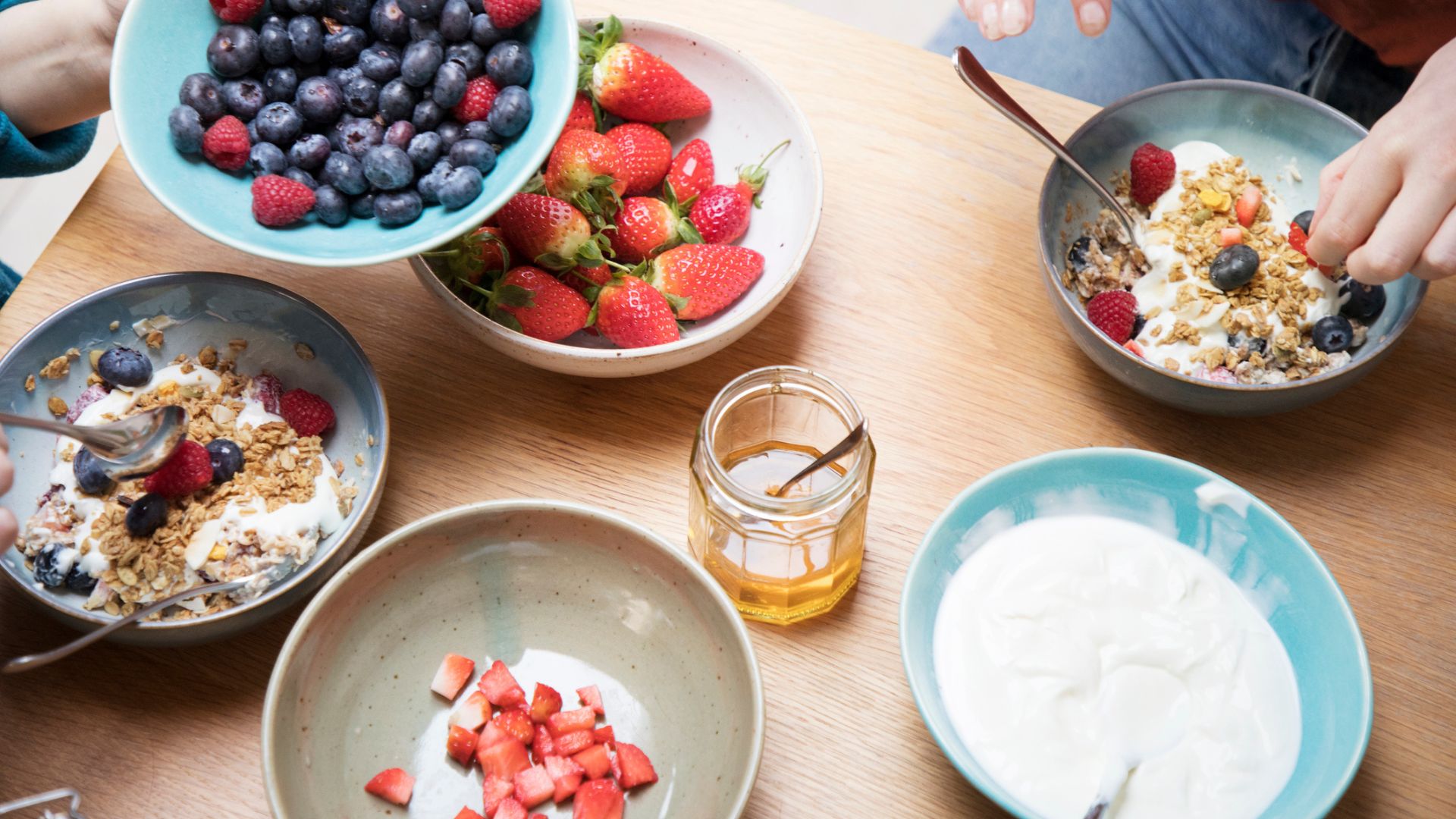
8. Oats
Add some natural yogurt to your overnight oats or porridge in the morning for a double protein hit. Oats, especially dry rolled oats, offer an impressive amount of protein (around 13.5g per 100g) for the number of calories (379 per 100g).
Protein overnight oats recipe:
- 50g oats (188 calories, 7.5g)
- 125ml oat milk (50 calories, 0.2g protein)
- 40g protein powder (calories and protein depending on brand)
- 100g Natural yogurt (105 calories, 3.1g protein)
- 70g frozen raspberries (34 calories, 0.7g protein
9. Turkey
Much like chicken, turkey is a great source of protein with 27g per 100g. In the same amount, you'll also get approximately 190 calories, which is considerably low for the amount of protein per serving.
Many people like to weigh up chicken vs turkey when it comes to protein and calories, and there is some merit to this. Chicken typically has 240 calories with 27g of protein by comparison. So ultimately, it comes down to what you prefer and what's easiest because while there is some difference, the difference isn't huge.
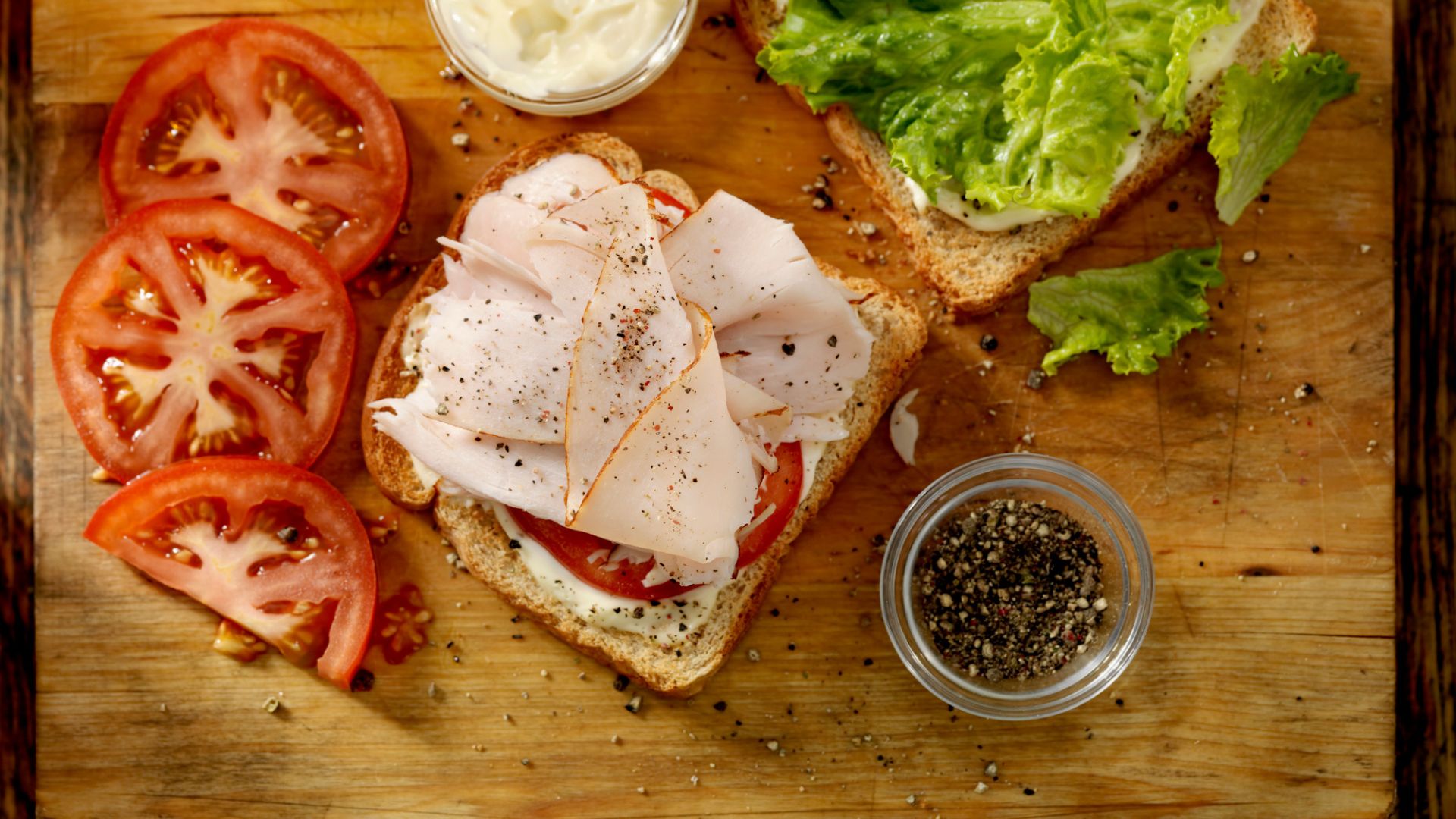
10. Lentils
Lentils are hugely beneficial to add into a balanced diet for a high protein and lower calorie intake. They're also great sources of fiber, folate, and potassium, says Roberts, and "very versatile, easy to incorporate into meals and dishes to boost the protein and nutrition content."
Fiber, research in association with the Norwegian University of Life Sciences reveals, is almost as filling of a micronutrient as protein. Particles of fiber are larger than carbohydrates or fat, for example, making them slower to digest and keeping us feeling fuller for longer. So, as much as it's important to include plenty of protein in your meals if you're looking to lose weight, fiber is important too.
11. Beans
Similar to lentils, Roberts says, beans are higher in protein, fiber, folate, and potassium, and lower in calories. Edamame beans are one excellent example but black beans, kidney beans, pinto beans, and white beans are others.
The bean with the highest amount of protein is the fava bean though, containing over 26g protein with 341 calories per 100g.
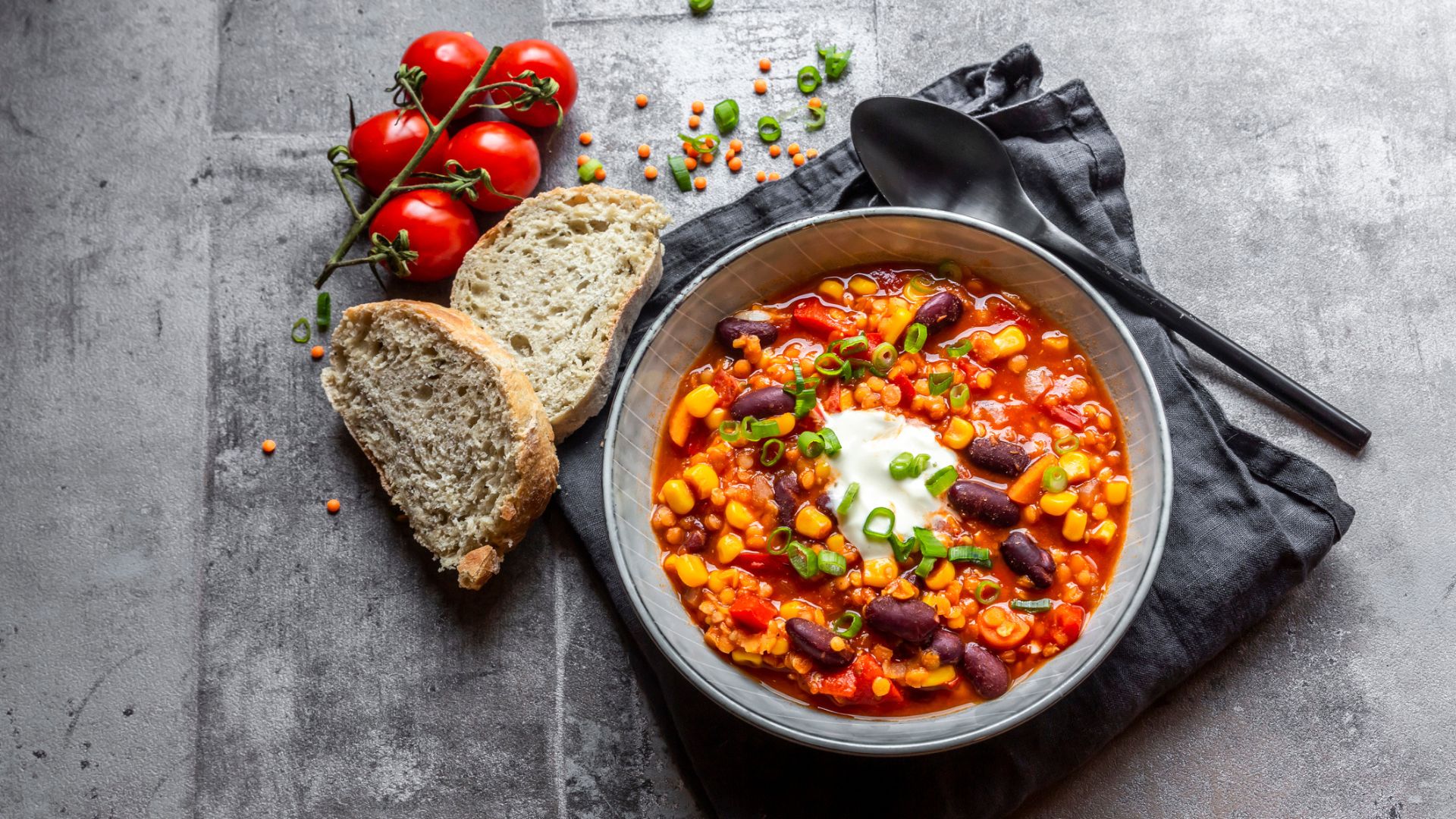
12. Peas
Avocado may be high in good healthy fats but it's higher in calories and lower in protein than many other vegetables - contrary to popular belief. Try peas smashed on sourdough bread, sprinkled with a drizzle of olive oil and a sprinkle of salt and pepper, for a higher-protein alternative.
As Roberts says, peas are high in protein and low in calories, with 5g of protein and 81 calories per 100g.
13. Hemp seeds
Hemp seeds are another one of the best high protein low calories foods based on plants, with more than 30g of protein per 100g. There are more calories in hemp seeds (567 on average per 100g) than other seeds, like sunflower or pumpkin, the difference isn't too much and these offer so many benefits.
As well as being high in protein, these seeds are an excellent source of vitamin E and minerals, including potassium, magnesium, sodium, calcium, iron, and zinc.
Hemp seeds comes from the Cannabis sativa plant, and while they do have association by name, hemp seeds only contain a very small amount of THC, which is the psychoactive compound found in cannabis. So while it won't be suitable, or available to everyone, hemp seed in pure or oil form can make for a great supplement to a balanced diet.
14. Spirulina
Spirulina is a type of algae that's often added to smoothies, acai bowls, and juices to give it a bright blue color. It's also one of the richest plant-based sources of protein, explains nutritionist Roberts, with as much as 70% of its energy coming from protein.
"Depending on the source, 100g of spirulina contains around 57-65g of protein," she says. "However, it’s usually consumed in much smaller quantities, often in capsule or powder form, so it’s difficult to get a significant amount of protein from the typical serving recommendations. Though, adding spirulina in a smoothie or juice would be a great way to add a little more protein to your diet, in terms of the protein content as well as the nutrient content."
As well as helping you to stay full through the day and lose weight healthily, spirulina plays an essential role in many bodily functions, mirroring the benefits of sea moss.
"[This includes] building and repairing tissues, maintaining and building muscle mass, supporting bone health, and regulating hormones and enzymes," she says. "Spirulina is also rich in vitamins and minerals, including iron, calcium, magnesium, and B vitamins, which all contribute to overall health and wellbeing."
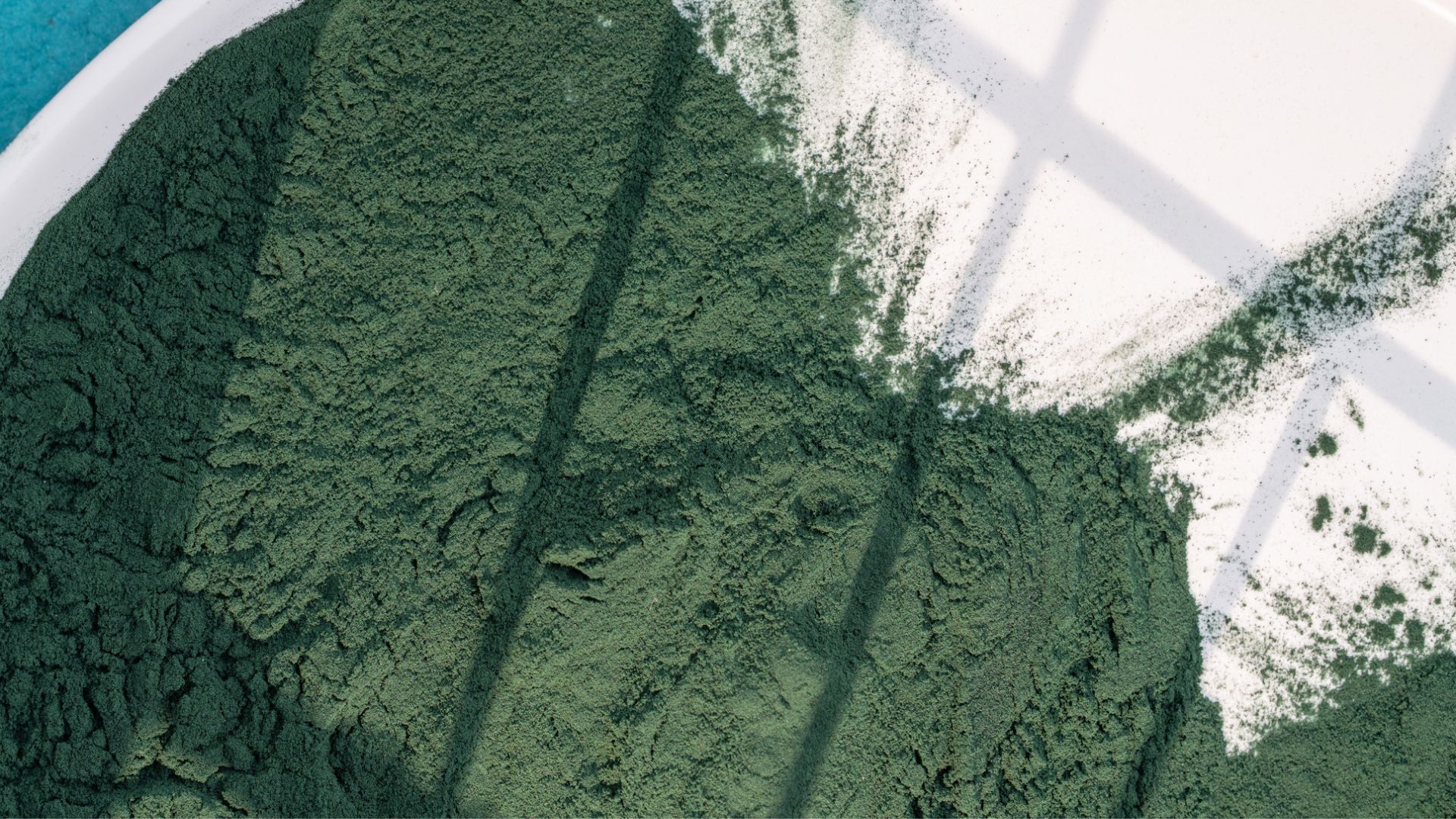
15. Quark
Quark isn't a familiar food to many people, but once you hear of its high protein and low calorie merits, it's one you'll be adding to your basket.
"Quark is a type of fresh cheese that is similar to Greek yogurt or cottage cheese, but with a slightly different taste and texture," explains Roberts. "It's a great source of protein and is also relatively low in calories, making for a super versatile snack or addition to a smoothie. Per 100g it offers 57 kcal and 14g protein."
16. Peanut butter
We've left the most contentious food on this list until last for a reason. Peanut butter, and many other nut butters, can't actually be considered a high protein food, explains Hope, as they don't meet the requirements.
"A high protein food is one which contains at least 20% of it’s energy from protein," she explains. "Around 17-18% of the energy in peanut butter come from protein, which makes it a source of protein, rather than a high protein food. A source of protein must get at least 12% of its energy from protein."
Are there other foods with much higher protein content that contain far fewer calories? Sure. But sometimes there's nothing better than a dollop of peanut butter on your porridge, so provided you stick to the recommended serving size, there's really nothing wrong with it when it comes to losing weight healthily.
How can I get more protein without adding calories?
It's not possible to increase your protein intake without consuming calories. Calories are just a unit of energy and protein is a form of energy, so all protein will have calories. However, by opting for the best high protein low calorie foods like plant-based protein sources and lean meats like chicken and turkey, along with fish, you can improve your protein intake without adding loads of additional calories to your meals.
How you cook also makes a big difference, nutritionist Micheletti says. Where possible, opt for baking or grilling foods instead of pan frying as this adds additional calories to your meal thanks to olive oil and other frying sprays. Equally, air frying will be a good option, with up to 70 to 80% fewer calories consumed when someone uses an air fryer versus other methods, according to research by the University of Florida.
How much protein do I need per day to lose weight?
If you're looking to lose weight, you should aim to eat between 1.2 and 1.7 grams of protein per kilogram of bodyweight per day, explains Micheletti. Although, she notes, "It's hard to say how many grams a woman should consume specifically, since it depends on various factors such as body weight, activity level, and fitness goals."
For example, someone looking to gain muscle while losing weight would need more protein from the best high protein low calorie foods than someone interested in just maintaining their muscle mass.

Grace Walsh is woman&home's Health Channel Editor, working across the areas of fitness, nutrition, sleep, mental health, relationships, and sex. She is also a qualified fitness instructor. In 2025, she will be taking on her third marathon in Brighton, completing her first ultra marathon, and qualifying as a certified personal trainer and nutrition coach.
A digital journalist with over seven years experience as a writer and editor for UK publications, Grace has covered (almost) everything in the world of health and wellbeing with bylines in Cosmopolitan, Red, The i Paper, GoodtoKnow, and more.
-
 Kate Moss's best looks, from 90s slip dresses to leopard print staples
Kate Moss's best looks, from 90s slip dresses to leopard print staplesEffortless and stylish, our favourite supermodel has an iconic style that can easily be recreated
By Kathryn Lewsey
-
 Helen Skelton's layered look is giving me plenty of country chic style inspiration this Earth Day
Helen Skelton's layered look is giving me plenty of country chic style inspiration this Earth DayShe paired a mocha-coloured jumper with a blue shirt and a pair of wellies by Kate Middleton's favourite brand
By Caroline Parr